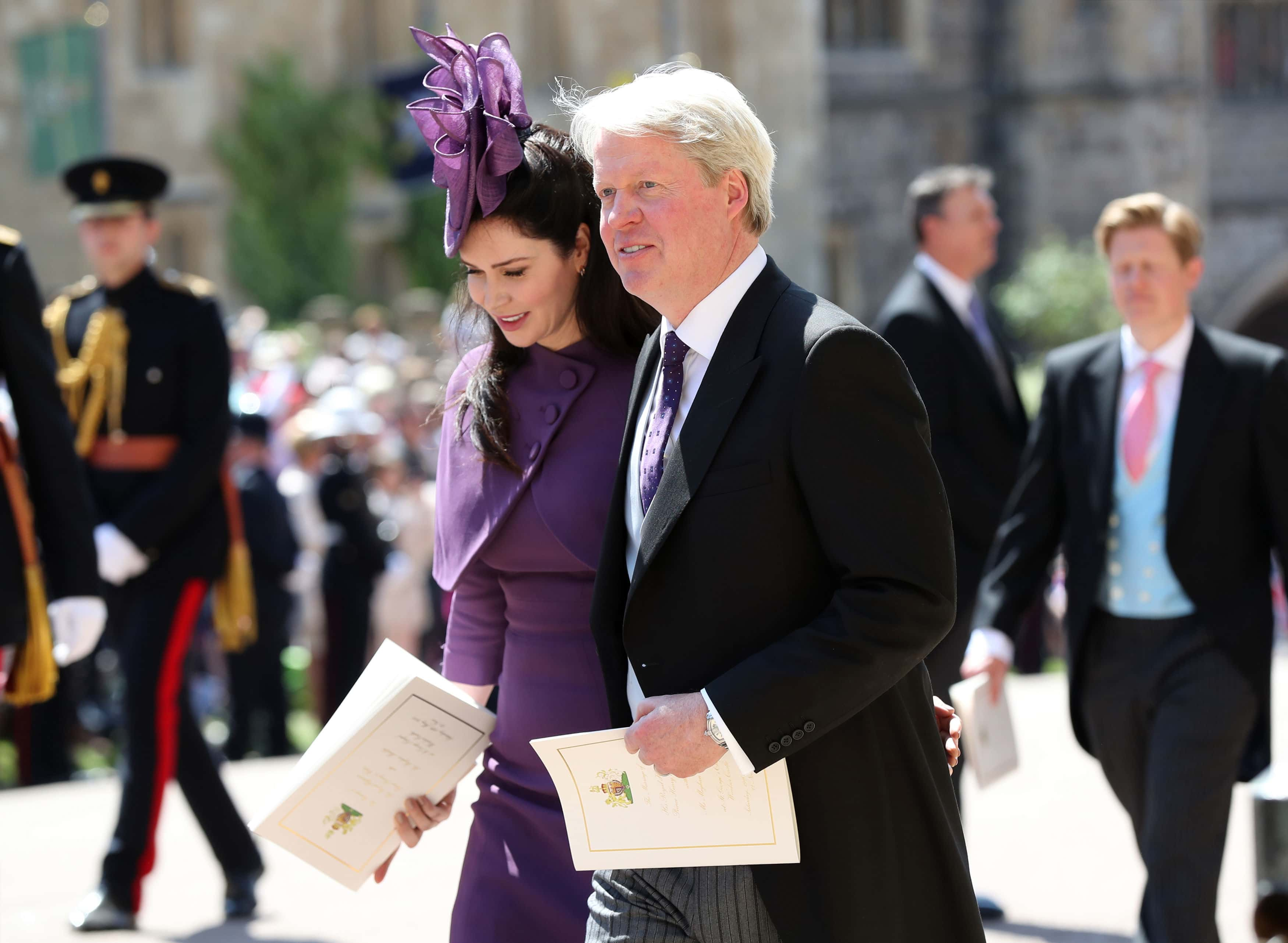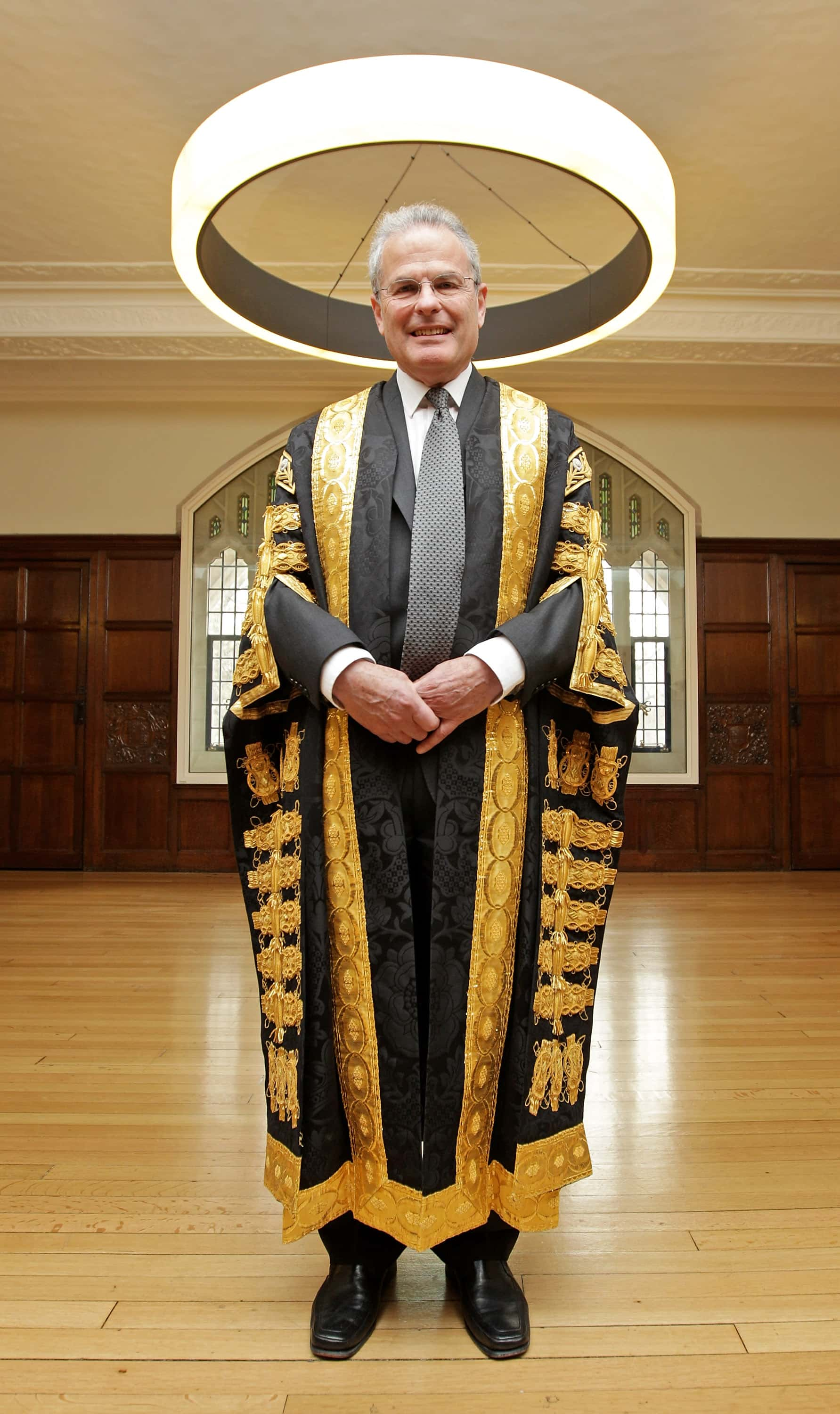Who was Steve Hewlett? Panorama editor told Princess Diana's brother that Martin Bashir was 'one of his best'

An investigation has concluded that the BBC presided over a gross breach of editorial standards in its bid to land an exclusive Panorama interview with Diana, the Princess of Wales, in 1995. Following his months-long probe, former judge Lord Dyson concluded that Martin Bashir had used deceptive tactics, including forged banks statements, to convince the late royal into giving the tell-all interview.
Former BBC director-general Lord Tony Hall is accused in the report, published Thursday, of leading a “cover-up” to protect Bashir. Meanwhile, there are also questions surrounding Steve Hewlett, the late Panorama editor who told Earl Charles Spencer, Diana's younger brother, not to worry about Bashir as he was "one of his best" men.
RELATED ARTICLES
Who was Steve Hewlett?
The veteran presenter and journalist was Panorama's editor when the bombshell Diana interview was broadcast in 1995. He is reported to have been involved in meetings with her, though it hasn't been verified yet. Among Hewlett's notable credits were serving as the director of programs at Carlton TV – now Channel 4 – as well as producing hit programs such as 'Diverse Reports', 'Second World War in Colour', and an award-winning 1991 BBC documentary from the Maze correctional facility.
The renowned journalist joined BBC Radio 4’s current affairs program The Media Show when it launched in 2008, according to The Sun. He later also became a prolific columnist for The Guardian. Hewlett died in February 2017 from oesophageal cancer at the Royal Marsden Hospital.
Early warnings
According to journalist John Ware who covered Dyson's wide-ranging report, the first alarm bell that should have alerted BBC management came in December 1995, a month after the sensational interview had been aired. Designer Matt Wiessler, a colleague of Bashir, approached current affairs bosses Tim Gardam and Tim Suter at the time and told them about claims that Bashir may have forged bank statements.
Wiessler told Gardam and Suter that he had previously approached then Panorama editor Hewlett, who assured him there was nothing to worry about. According to Wiessler, he realized a possible link between the fake documents and the interview after it was broadcast.
Ware, in his report, wondered why Hewlett had not warned management when he was first alerted about the fake bank statements shortly after the transmission.
According to evidence documented by Lord Dyson, Hewlett first learned about the statements after Wiessler faxed them to Panorama producer Mark Killick, with whom he had previously worked. Killick immediately recognized the name "Penfolds Consultants" because the firm had previously featured in two Panoramas he and Bashir had made about the business affairs of former England soccer manager Terry Venables. Killick wondered why Penfolds was involved with paying an ex-employee of Earl Spencer.

When Killick confronted Bashir with the bank statements, Bashir reportedly told him it was none of his concern. After that, Killick took two of his colleagues -- former Panorama deputy editor Harry Dean and Panorama reporter Tom Mangold -- to meet with Hewlett on December 4, 1995. The editor also reportedly told them it was none of their business.
When asked if he knew about the statements, Hewlett said he couldn't remember. Nonetheless, Killick suggested Hewlett talk to Spencer. However, there was no evidence that either Hewlett or anyone from BBC management had ever checked Bashir's version of events against Spencer's, Ware noted.
Dyson was quite critical of this failure, saying that the investigation conducted by Hall and Anne Sloman, a former radio current affairs producer who went on to become the BBC's chief political adviser, was "flawed and woefully ineffective." Dyson said it "would have been substantially changed if they had bothered to speak to Earl Spencer," which they didn't.

Hewlett later assured Dean that the information on the bank statements was genuine, saying Venables had "given up his interest in Penfolds and the name appearing in the fake bank statements was merely coincidental." According to Ware, that assurance "seems likely to have come from Bashir himself."
Hewlett's Arena interview
It's worth noting that Hewlett was interviewed for the BBC Arena documentary marking the 10th anniversary of Bashir's scoop. According to Ware, he agreed to be interviewed only if he wasn't asked specifically about the forged bank statements. And so he was asked about how Bashir met Diana instead.
Ware obtained a transcript which showed "the normally sure-footed Hewlett" appearing to stumble. "I'm sure he told me he was going to see her… look, he's a journalist, he does his business, I don't follow him around all day, so you know, I've got a show to run… what, precisely… how he did it, to be honest, I don't know." He added "You know… he's an operator, so he manages relationships very cleverly. I don't mean…dishonestly, but he manages them cleverly.
Ware questioned whether Hewlett was still convinced by 2005 that Bashir had "managed" his relationship with Diana "very cleverly" but not "dishonestly."
"The idea that Hewlett hadn't yet suspected that Bashir got to Diana by deceiving Spencer sits uneasily with his careful editorial eye," Ware concluded.










